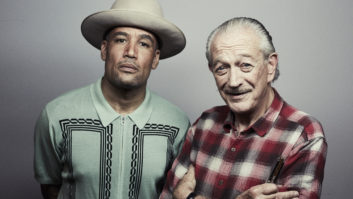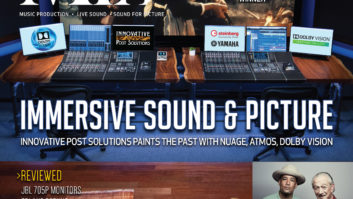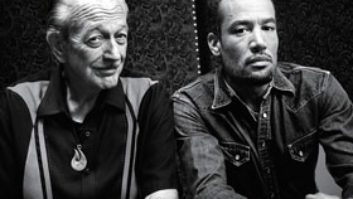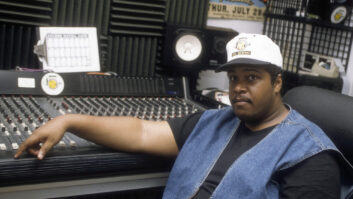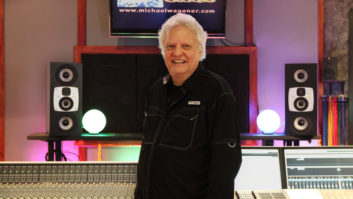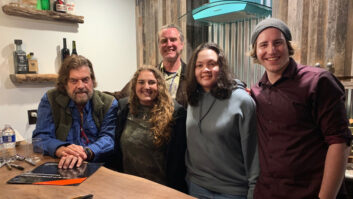Friends often ask engineer/producer Sheldon Gomberg how he stays positive in spite of what he’s lost. Once an in-demand bass player, Gomberg, who suffers from multiple sclerosis, is now relegated to a scooter. Sessions and tours are off the table since he lost his fine motor skills. The abilities that led him to play alongside Warren Zevon, Rickie Lee Jones, Kenny Wayne Shepherd and so many others are behind him. But his music career remains strong.
“You have two choices,” Gomberg says. “You can give up, or you can try to grab everything in life that’s there. There’s a ton of stuff I want to do. I want to get up every day and make music. It used to be that I’d study and practice eight hours a day, and then later in life I’d play two or three gigs. Now I’m in a different role.”
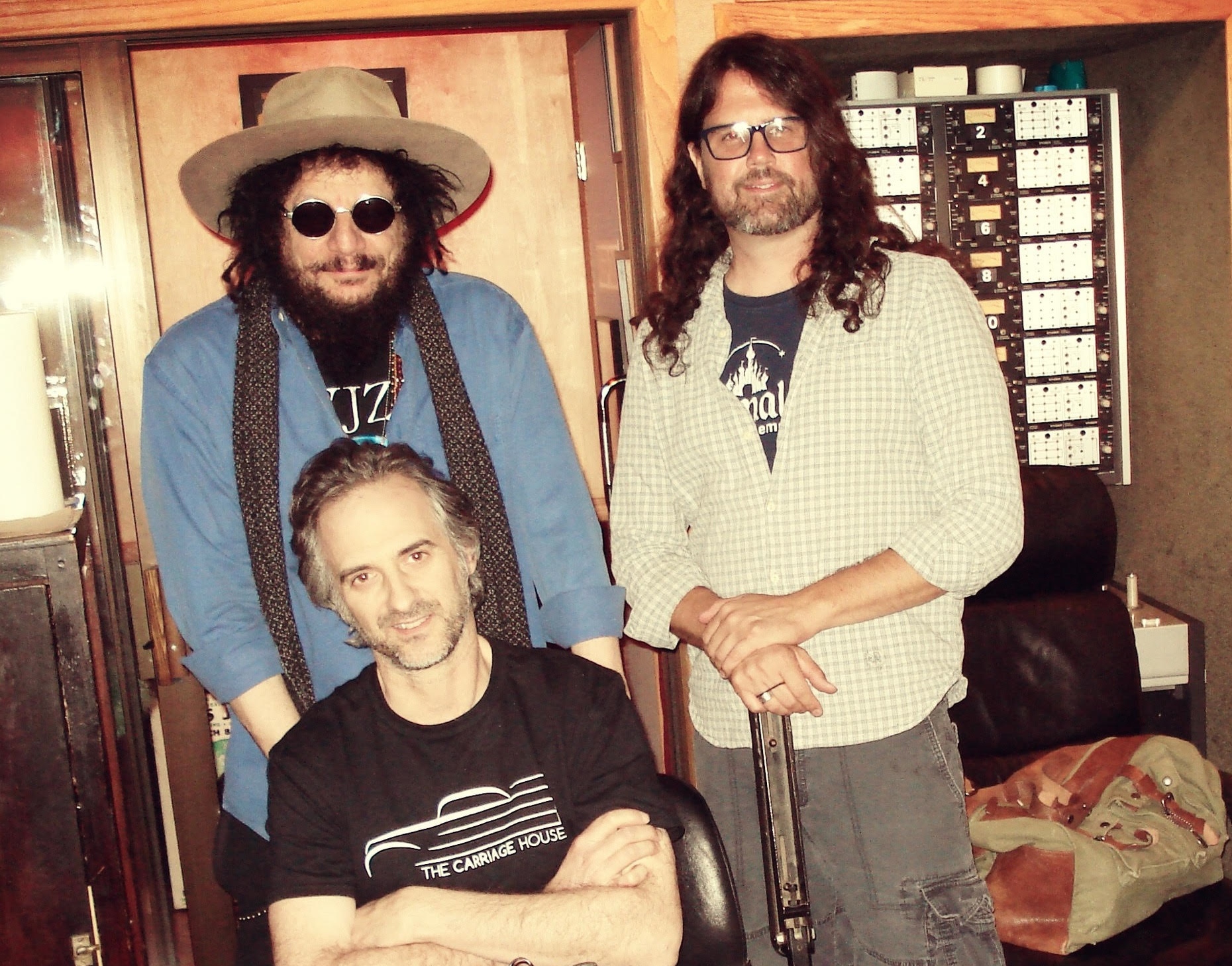
Gomberg, who won a Grammy Award in 2014 for his engineering/mixing/co-producing contribution to the Ben Harper/Charlie Musselwhite release Get Up!, is presently working on a fantastic-sounding Mose Allison tribute. And his latest project—co-producing Harper and Musselwhite’s recent release, No Mercy in This Land—is profiled in the Mix April issue.
Related: Ben Harper and Charlie Musselwhite: Beauty of the Blues Is Boundless on “No Mercy in This Land,” by Barbara Schultz, Mix, April 4, 2018
While discussing the production, Gomberg expressed a willingness to share his story of loss and reinvention. His hope is that his experiences might resonate and inspire other music makers with disabilities to find new ways to keep going. And he reminds musicians that there’s help out there from organizations such as Sweet Relief or MusiCares, both of which were there when he needed them.
When did your symptoms start?
The first time I noticed it, I noticed my hands and feet were a little numb. I used to restore cars, 1938 and ’39 Lincolns, and I was under one, trying to put a bolt into the firewall, and I couldn’t feel it very well. It’s a hard numbness to describe. The best I’ve heard it described is like an elephant skin: You can still feel underneath it. I also noticed that it was harder for me to make precise moves on guitar.
When I first noticed it, I thought I had carpal tunnel syndrome, especially because I was having to grip the neck harder to control it, and that did cause a lot of pain in the carpal tunnel area.
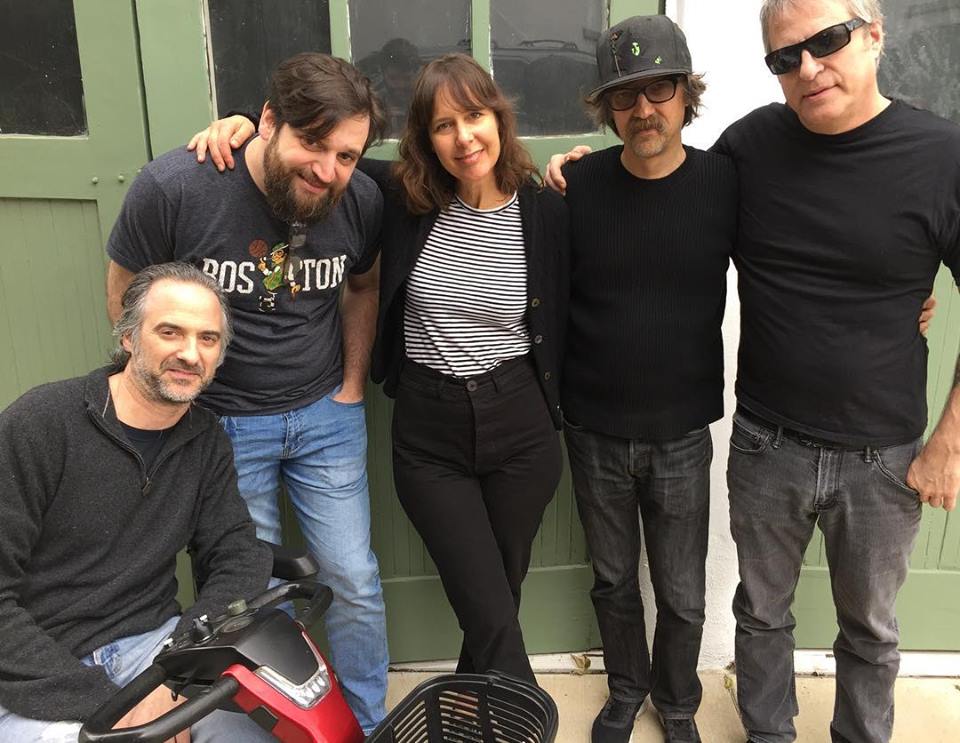
The doctor that I had didn’t diagnose it, either. For a year he sent me to all kinds of doctors, and I was being prodded and pricked and they gave me electrical tests to see if I was responding to this or that.
Finally I went to someone I knew who knew a tech; he offered to give me an MRI just to rule out everything like MS. I was still lying on the table and he came in and said, “The technician is freaking out. You have spots that look like MS.”
I took the images to a radiologist, and he said, “Yeah, it looks like you have MS, but you should give it to your doctor.” So, I gave it to my doctor and I said, “I think it’s MS.” And he goes, “I wouldn’t be so sure about that,” and he sent me to another whole round of doctors. Ultimately, I ended up seeing another neurologist. He asked a bunch a questions and said, “Let’s go in the other room. “He grabbed the MRI images and threw them up on the backlit screen, and before they stopped shaking, he says, “Okay, there’s your problem.”
What did you know about the disease itself at that point? Did you know anyone else who had it?
One person I knew of who had it then was Ronnie Lane from The Faces. I didn’t know him, but I saw the ARMS Race shows in the ’80s, when Jeff Beck, Jimmy Page and Eric Clapton were touring, raising money for Ronnie. When he walked to the edge of the stage at the end of the night, I thought, “Wow, poor guy.”
So, I knew it wasn’t a great disease, but I figured it wouldn’t be the end of the world. The symptoms I had then were mild. I didn’t expect it to get worse, but even if it did, worse was off in the future. For 10 years, I didn’t tell anybody and nobody knew. Then it just went over a cliff.
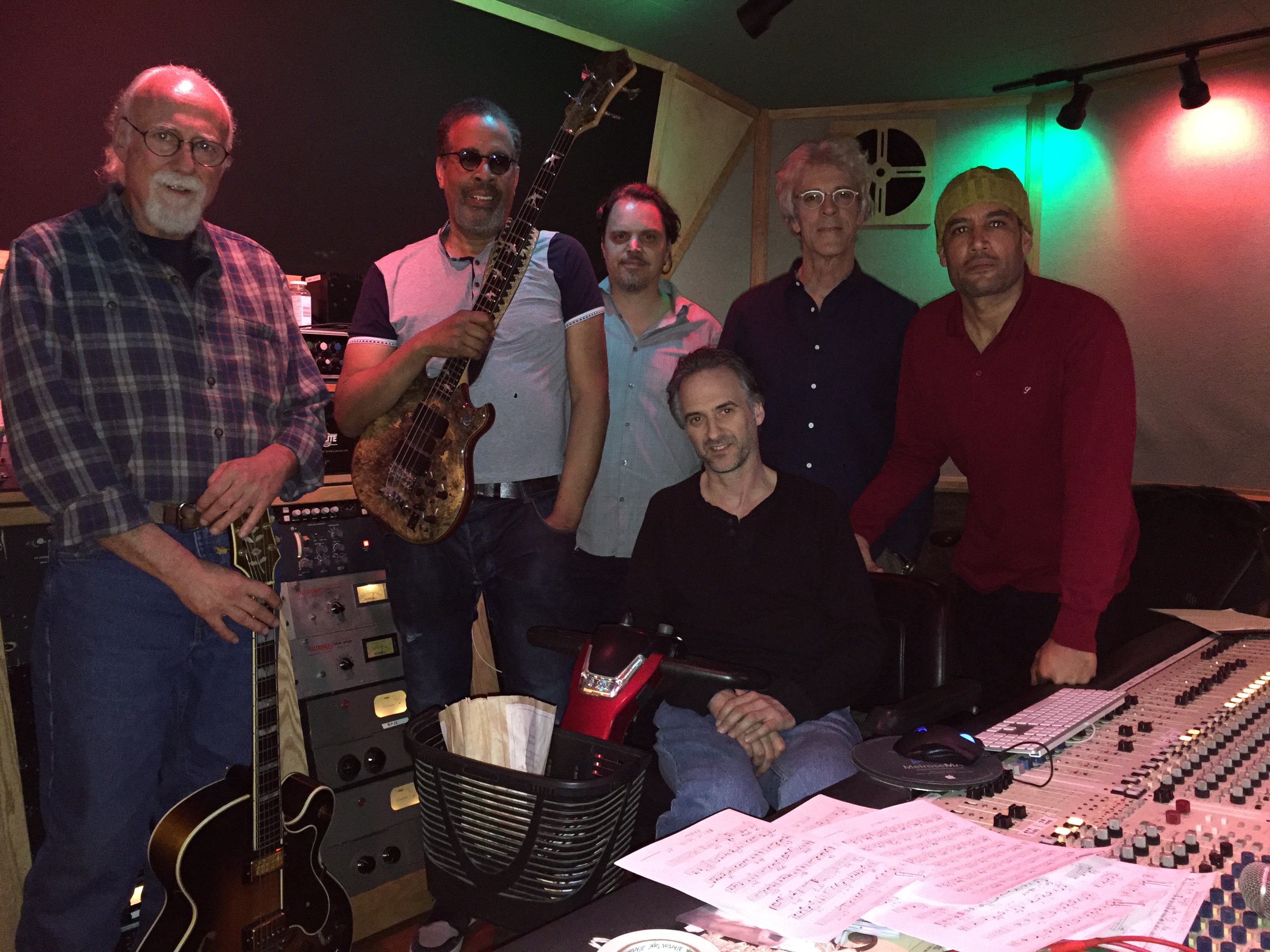
What happened?
I started having trouble walking. If I walked a long distance, I’d start tripping over my feet. One day, I got out of bed and almost did a face plant. My legs just didn’t work.
I repaired a little from that and had the relapsing-remitting stage of the disease. Now, pretty much everything that happens to me doesn’t get better.
Were you still playing at that point?
As things got more difficult playing, I kept dumbing down and simplifying the playing, which was kind of a cool exercise—to make a simpler statement and still make it good. But then playing just got to be too hard. I had worked so hard not to be the guy in the room that sucked.
Even when I couldn’t stand up, I could still play, but it got to the point where it was definitely not the way I wanted to play.
How did you make the change to the technical side?
When I was still playing, I produced a couple of people. It was something to do for fun, and it was interesting and it took off right away. Thank God, because things were in place for when I couldn’t play anymore. If it wasn’t for this, I’d be living in a home or be a burden to my dad. Luckily, I was able to reinvent myself and do something I love doing almost as much as playing.
Some of the projects I was doing were not big budgets, so I started a studio where no one would have to watch the clock. That’s when I found out what a bad idea it is not to watch the clock. [Laughs]
Is it a challenge to operate your studio equipment?
Yes, definitely, because I can’t stand up anymore, but I have guys who work with me and I’ll tell them what I need as far as setting up microphones. I can reach most things on the console and reach the outboard gear.
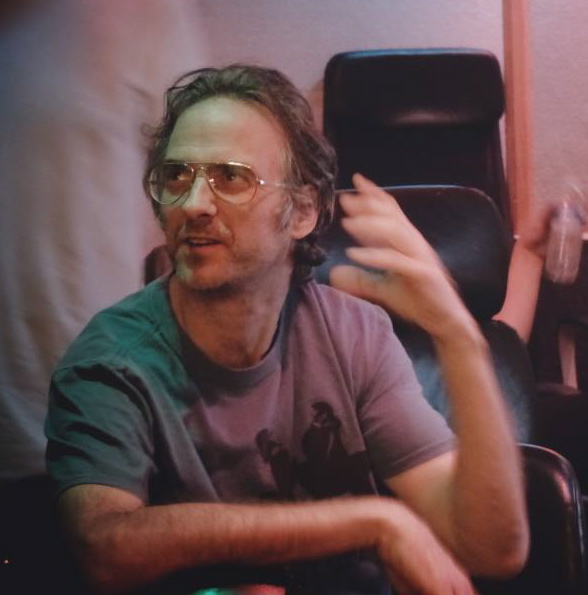
Have you needed any other accommodations—building access, for example?
That’s how I got hooked up with Sweet Relief: When I got into the scooter, I could no longer walk up stairs to my house, and so I had to put in a lift. That’s pretty expensive, so I called Sweet Relief, and they were very helpful. They hooked me up with MusiCares also.
Related: Sweet Relief III: Pennies from Heaven Benefit Album Is a Musical Gift, by Barbara Schultz, Mix, Sep. 1, 2013
How important are those organizations, to you and in general?
They’re fantastic. Unless you’re in a strong union, musicians don’t have any insurance or pension, and those guys are so giving and so helpful.
They will also work with your community to put together crowdfunding campaigns. In my case, they actually gave me a check, though, and MusiCares also did, and between them I was able to pay for the elevator.
I’m not one who accepts gifts well, so I wanted to do something to repay [Sweet Relief]. And I thought, “This is what I do: I make records,” and they hadn’t done [a benefit album] in a while. I thought, “Why not do one for them and raise awareness and raise money for them?”
I didn’t want to do a Kickstarter because I didn’t want to ask artists to do autographs and donate prizes. So a friend of mine and I raised all the money to make the record [Sweet Relief III: Pennies from Heaven] and got all of these great artists to be part of it—Ben Harper, Jackson Browne, Ron Sexsmith, She & Him, Rickie Lee Jones.
It felt really good not only to be giving back to Sweet Relief, but also to be giving back to the community that had been supporting me all of these years as a musician.
If other musicians find themselves struggling with a medical issue, what do you hope they learn from what you’ve been able to do?
I hope people can understand that, yeah, it’s harder now to do things, but I still get to do things. The physical limitations can be very frustrating, but you figure out ways to work around them, or you figure out new things to do.
Is there anything you bring to your work that’s special because of your disability?
I suppose it makes you appreciate what you have. It makes you appreciate what you can still do. People ask, “How are you doing?” Well, I’ve been better, and I’ll definitely be worse. So, wherever you are, at that stage, you have to try to appreciate that, be happy about that. I’m not going to say that I don’t get frustrated as hell, because I definitely do. If I fall over or I drop something, that’s really frustrating. But when I’m working with people, they seem to respond really well. I hope that it’s inspiring that I keep fighting to still get to work with great people and make music.
Sheldon Gomberg • www.sheldongomberg.com
Sweet Relief Musicians Fund • sweetrelief.org
MusiCares • www.grammy.com/musicares
